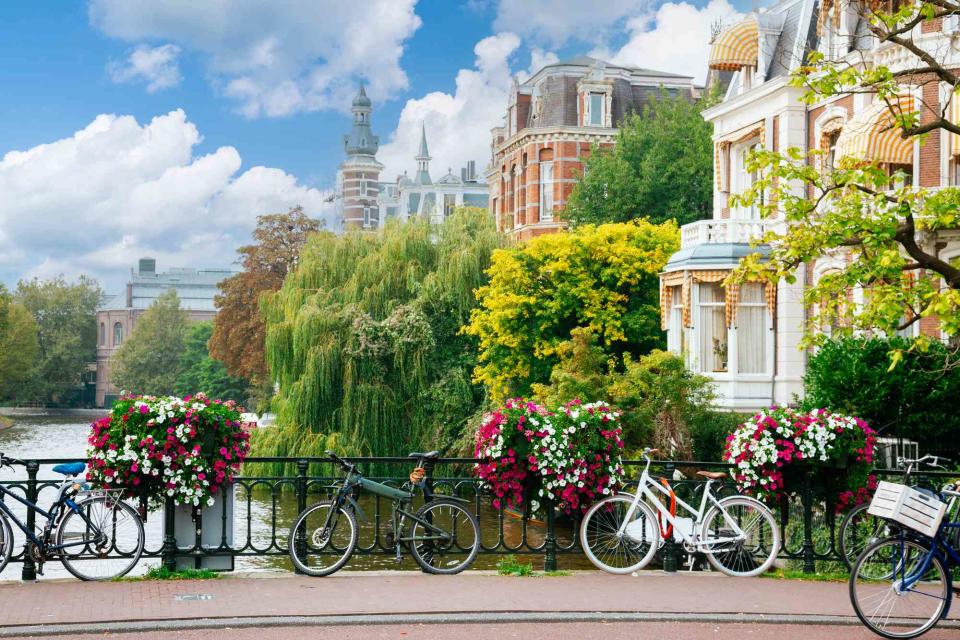Amsterdam Just Banned Nearly All New Hotels — What to Know
You may want to reserve your next hotel in Amsterdam early.

Andrey Danilovich/Getty Images
The city of Amsterdam will ban nearly all new hotels and restrict the number of tourists who can stay overnight each year in its latest effort to combat overtourism.
Amsterdam will now prevent all new hotels from being built unless another closes elsewhere, according to an announcement by the city's government. The new hotel must also be more modern or sustainable, and the city is encouraging developers to choose locations outside the city.
The new rule will not apply to hotel projects that have already received permits.
In addition, Amsterdam will limit properties to 20 million overnight stays, which is 665,000 fewer overnight stays than the total number of hotel nights in 2023 (not including holiday rentals, bed and breakfasts, or cruises), according to the city's announcement.
"We want to make and keep the city livable for residents and visitors," Amsterdam's local authority wrote. "This means: no overtourism, no new hotels, and no more than 20 million hotel nights by tourists per year."
This year, Amsterdam also increased its tourist tax to 12.5%. The tax applies to travelers staying both overnight or visiting on cruise ships.
Amsterdam is far from alone in trying to reduce the burden of overtourism. The city of Venice, Italy, is implementing a fee for day trippers and wants to limit the number of travelers allowed on tour groups. Similarly, Iceland plans to implement a tourist tax to support climate and sustainability goals, and Athens, Greece, tested a pilot program last summer limiting daily visitors to the famous Acropolis to 20,000 people.
Outside of Europe, the Japanese city of Kyoto banned non-residents from some private alleys in its geisha district in an effort to combat overcrowding and misbehaving tourists. And in the United States, the governor of Hawaii recently proposed charging tourists a $25 fee when they arrive and check in to a hotel or short-term rental, with the revenue going toward beach preservation, fire breaks, and other prevention measures.
For more Travel & Leisure news, make sure to sign up for our newsletter!
Read the original article on Travel & Leisure.

